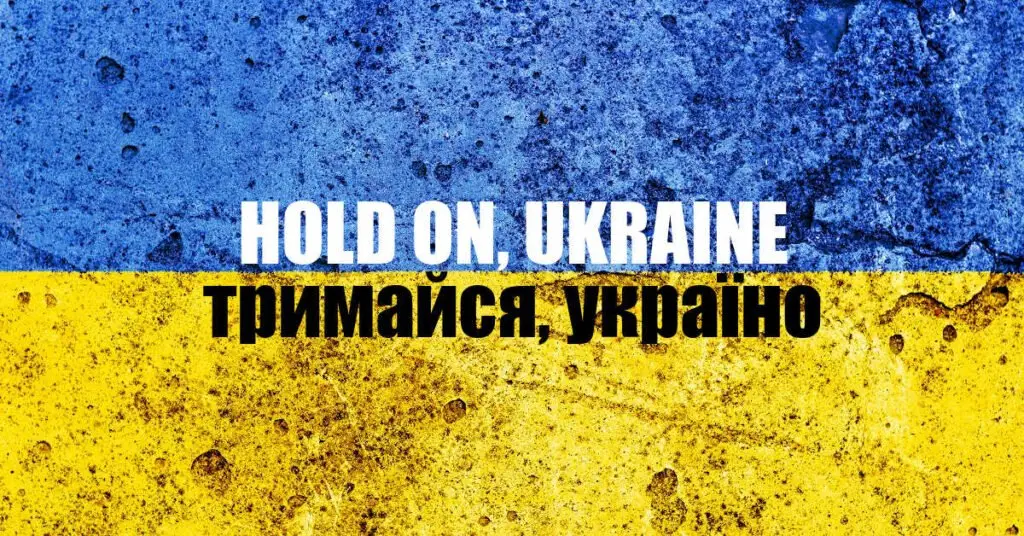
Hold on, Ukraine! This story echoes the descriptions of my mother and grandmother during World War II when pure humanity amidst despair became a lifeline.
In part and as a whole, Ukraine has a fraught history of cycles of occupation and autonomy throughout its existence. Just in the last decade, it has seen the Revolution of Dignity and the Annexation of Crimea by the Russian Federation in 2014 (not recognized by Ukraine and by the United Nations), followed shortly by Ukrainian separatists self-proclaiming the Donetsk People’s Republic and Lugansk People’s Republic, which in turn escalated into the War in Donbas. Those conflicts resulted in many casualties and internal displacement, further exacerbating Ukraine’s economy and a renewed fight against political corruption. In 2020, Lithuania, Poland, and Ukraine created the Lublin Triangle initiative, which among other things, aims to further Ukraine’s integration into the European Union, with a possible application for EU membership in 2024.
That historical bit aside, what Ukraine is going through today is unconscionable. I will not dwell on the political side but on the human side. No people should be subjected to senseless and foolish violence, let alone in such a ruthless, obliterating manner. Pragmatically speaking, nothing can erase what is being done to the people of Ukraine. Much support is being shown to the people of Ukraine worldwide in many ways – through messages of encouragement, donations of all types, expressions of dismay, and disbelief. They are historically resilient people who will emerge from this unimaginable conflict with the determination to rebuild and regain stability. Many Ukrainians are showing a fierce, resourceful defense of themselves, their identity, and their country, leaving outside observers in awe of such resilience and spirit in an age that should require peaceful unity more than ever.
The events in Ukraine remind me of the stories my mother and grandmother used to tell me. My mother was born in a town southeast of Berlin, Germany. She was still living there as a young teenager during World War II. In mid-February of 1945, the town was bombed by several hundred American B-17 bombers dropping a staggering amount of high-explosive bombs, destroying most of it, killing thousands of people, a third of them children. At the end of 1945, only 8,000 out of 50,000 pre-war inhabitants of the place remained alive.
After the initial bombings, my grandmother decided to flee for the West. She packed a suitcase, bundled up, and, leading my mother by the hand, ventured into the night toward the border. As they reached the barbed-wire border, a twenty-something-year-old Russian sentry yelled, “Stoi!” (Halt!) My grandmother stopped moving and whispered, “Please, let us go, go through.” The soldier shook his head and kept repeating, “Nyet! Nyet!” (No! No!), gesturing with his rifle to stand back. Grandmother had hidden a carton of cigarettes (she did not smoke but knew what soldiers would like) and said: “I have cigarettes. You can have them in exchange.” The soldier lowered his weapon, looked from grandmother to my mother to the carton of cigarettes, hesitated, and whispered, “Harashó!” (Deal!), lifted the barbed wire, and urgently intimated, “Davai! Davai!” (Go, Go!)
Grandmother told me that that was the scariest moment of her life; not the bombings, not the dust and debris falling, not the sound of air raids, not the whistling of ammunition around them, not people pushing and shoving one another, not losing everything: that moment. She recounted how appealing to that young soldier, in her very broken Russian, was the single-most-important thing she had ever done. She hoped but had no guarantee that cigarettes would ensure passage to freedom. I asked her if she had a weapon, some way to defend herself. She replied: “My only weapon was appealing to his humanity. I hoped he had a soul and saw an innocent child with me, not much younger than himself.” That particular story stuck with me; I admired her poise and courage and told her so. She smiled at me and commented, “Words and faith should be more powerful than any weapon.”
Raise your voice, people of Ukraine. Hold on. Тримайся, Україно!
